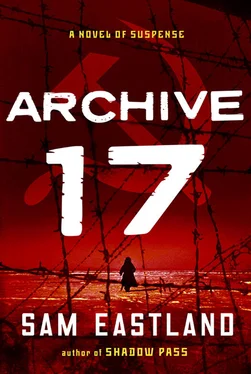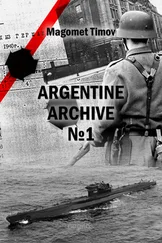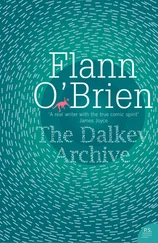Sam Eastland - Archive 17
Здесь есть возможность читать онлайн «Sam Eastland - Archive 17» весь текст электронной книги совершенно бесплатно (целиком полную версию без сокращений). В некоторых случаях можно слушать аудио, скачать через торрент в формате fb2 и присутствует краткое содержание. Жанр: Исторический детектив, на английском языке. Описание произведения, (предисловие) а так же отзывы посетителей доступны на портале библиотеки ЛибКат.
- Название:Archive 17
- Автор:
- Жанр:
- Год:неизвестен
- ISBN:нет данных
- Рейтинг книги:3 / 5. Голосов: 1
-
Избранное:Добавить в избранное
- Отзывы:
-
Ваша оценка:
- 60
- 1
- 2
- 3
- 4
- 5
Archive 17: краткое содержание, описание и аннотация
Предлагаем к чтению аннотацию, описание, краткое содержание или предисловие (зависит от того, что написал сам автор книги «Archive 17»). Если вы не нашли необходимую информацию о книге — напишите в комментариях, мы постараемся отыскать её.
Archive 17 — читать онлайн бесплатно полную книгу (весь текст) целиком
Ниже представлен текст книги, разбитый по страницам. Система сохранения места последней прочитанной страницы, позволяет с удобством читать онлайн бесплатно книгу «Archive 17», без необходимости каждый раз заново искать на чём Вы остановились. Поставьте закладку, и сможете в любой момент перейти на страницу, на которой закончили чтение.
Интервал:
Закладка:
Removing a key from his pocket, Klenovkin unfastened the padlock and the two men stepped inside.
Klenovkin turned on an electric light. One bare bulb glimmered weakly from the low ceiling. Frost which had coated the thin glass shell of the bulb immediately melted away. By the time the droplets reached the floor, they had frozen again and crackled on the ground like grains of unboiled rice.
On one side of the freezer, pig carcasses dangled from iron hooks. On the other stood slabs of pasty white beef fat and stacks of vegetables which had been boiled, mashed, and pressed into bricks.
A wall of splintery wooden crates lined the back of the freezer. The crates were filled with bottles, each one marked with a yellow paper triangle, indicating Soviet army-issue vodka.
On the floor, behind the barricade of vodka crates, lay a dirty brown tarpaulin.
“There he is,” said Klenovkin.
Pekkala knelt down. Pulling aside the brittle cloth, he stared at the man whose death had brought him to Siberia.
Ryabov’s skin had turned a purplish gray. A dark redness filled the lips and nostrils and the dead man’s open eyes had sunk back into his skull. His open mouth revealed a set of teeth rotted by years of neglect.
Ryabov’s throat had been cut back to his spine, as if the murderer had wanted not simply to kill him but had attempted to remove his head as well.
The huge amount of blood which had flowed from Ryabov’s severed jugular had formed a black and brittle crust over the dead man’s chest.
At least it had been quick, Pekkala noted. From a wound like that, Ryabov would have bled out in less than thirty seconds.
The hands of the dead man had been wrapped in strips of rag, a common practice among prisoners to protect against the cold. Pekkala peeled back the layers of filthy cloth. It was not easy. Ice had bonded the strips so solidly together that Pekkala’s fingernails tore as he prised away the layers. At last the skin was exposed, revealing the image of a pine tree which had been crudely etched on the tops of Ryabov’s hands using a razor blade and soot.
“The mark of the Comitati,” observed Klenovkin.
Pekkala set his fingertips against the edges of the wound in the dead man’s neck. The skin was curved back on itself, a sign that the blade used to kill Ryabov had been extremely sharp.
Now Pekkala turned his attention to the man’s clothes. The padded coat and trousers had been washed so many times that the original black color had been bleached to the same dirty white shade as the snow which piled up on street corners in Moscow at the end of winter. The buttons had been replaced with pieces of wood hand-carved into toggles, and there were many repairs in the cloth, each one meticulously stitched with whatever fabric had been available. Searching the pockets of Ryabov’s jacket, Pekkala found nothing but black crumbs of Machorka tobacco, the only kind available to Gulag prisoners. It was made from the stems as well as the leaves of the plant and produced a thick, eye-stinging cloud that could be inhaled only by the most desperate and hardened smoker.
“Where was the body found?” Pekkala asked.
“At the entrance to the mine. I discovered it myself when I went there to speak with him.”
“Why were you there and not in your office?”
“When he first came to me, saying he knew where to find Colonel Kolchak, I told Ryabov I didn’t believe it. Kolchak is dead, I told him. But he insisted he had proof that the colonel was still alive, and he was so convincing that I thought I should at least hear what he had to say.”
“And what did Ryabov want in exchange for this information?”
“He didn’t say. He refused to talk in my office, because he didn’t want to risk being overheard, so we set up the meeting for that night in one of the mine tunnels. It’s not difficult for the prisoners to sneak out of their barracks at night. The entrance to the mine shaft is not guarded and the tunnels are not patrolled at night. We had set a time, just after midnight. By the time I got there, Ryabov had already been killed.”
“I was told you’d found the murder weapon.”
Without removing his hands from the warmth of his pockets, Klenovkin nodded towards an object lying on a nearby crate.
Pekkala saw it now-a crude homemade stiletto, whose finger-length blade had been fashioned from a piece of iron railing. The handle was a split piece of white birch, into which the railing had been inserted and string wrapped tightly around the wood to hold it in place. The tight coils of string were coated with a lacquer of dried blood. “This was made by a prisoner,” said Pekkala.
“It was lying right next to the body,” explained Klenovkin. “There’s no doubt this was the murder weapon.”
Pekkala said nothing, but he knew that the weapon which had killed Ryabov was no prison-made contraption. One glance at the blade told him that.
Prison knives were fashioned to be small, so that they could be easily concealed. He had seen lethal weapons constructed from pieces of tin can no larger than a thumbnail and fitted into the handle of a toothbrush. The weapon Klenovkin claimed he had found beside the body was a type used for stabbing, not cutting.
The blade which had cleaved apart Ryabov’s throat was wide and sharp enough to sever the jugular with one stroke. This was evident in the clean edge of the wound, showing that the killer had not required multiple strokes of the blade to accomplish his task.
“It proves the Comitati were involved,” continued Klenovkin.
“And how have you reached that conclusion?”
Only now did Klenovkin remove a hand from its fur-lined cocoon. One finger uncurled towards the dead man. “The Comitati did this, because no one else would have dared to lay a hand on Ryabov.”
“But why do you think they were the ones who murdered him?”
“I have considered this, Inspector, and there is only one possible answer. I first assumed that he was trying to secure the release of his men along with himself. What else is there to bargain for? But the more I thought about it, the clearer it became. Ryabov had no intention of escaping with the others. The only freedom Ryabov desired was for himself. He had finally seen the Comitati for what they really are-a clan of painted madmen clinging to a prophecy which becomes more and more improbable with every passing year. Ryabov had at last reached the correct conclusion-that unless he did something to help himself, he would die here in the camp.”
“Why do you think he would come to you now, after all these years of silence?”
“I believe their tight-knit group had been whittled away until those few who remained had finally begun to crack. Ryabov was prepared to abandon their old loyalties. The others were not. If you want to find the man who killed Ryabov, you need look no further than the men he used to call his comrades.”
After closing up the freezer, the two men walked out of the kitchen.
Under the glare of the camp’s perimeter lights, sheets of newly formed ice glistened in the compound yard. Beyond the tall stockade fence, the sawtooth line of pine trees stood out against the velvet blue night sky.
“If he was so desperate to escape,” asked Pekkala, “then why did he not simply attempt to leave on his own? He had learned to survive here in the camp. He could have found a way out and then, surely, he could have endured conditions in the forest long enough to make it across the border into China, which is less than a hundred kilometers from here.”
“The answer to that, Inspector, is the same as why you never escaped, in spite of the fact that you lived beyond the gates of this camp, with no guards to oversee your every move. Even if Ryabov could have made it through the forest on his own, he would never have gotten past the Ostyaks.”
Читать дальшеИнтервал:
Закладка:
Похожие книги на «Archive 17»
Представляем Вашему вниманию похожие книги на «Archive 17» списком для выбора. Мы отобрали схожую по названию и смыслу литературу в надежде предоставить читателям больше вариантов отыскать новые, интересные, ещё непрочитанные произведения.
Обсуждение, отзывы о книге «Archive 17» и просто собственные мнения читателей. Оставьте ваши комментарии, напишите, что Вы думаете о произведении, его смысле или главных героях. Укажите что конкретно понравилось, а что нет, и почему Вы так считаете.











